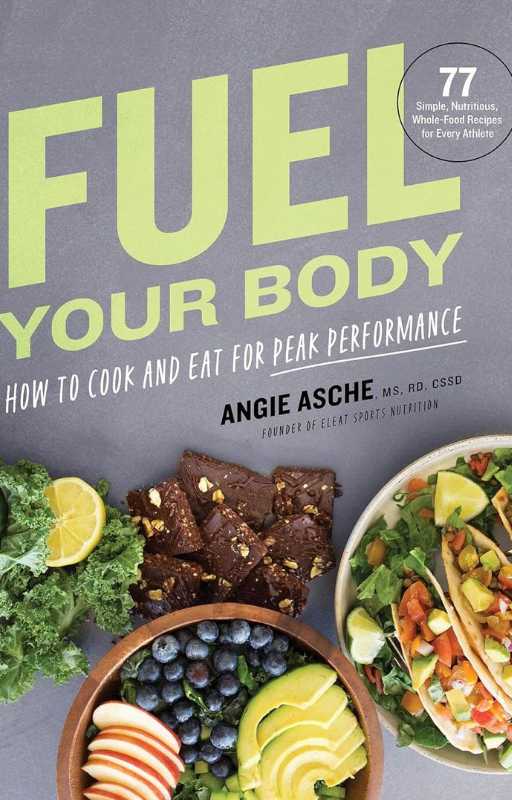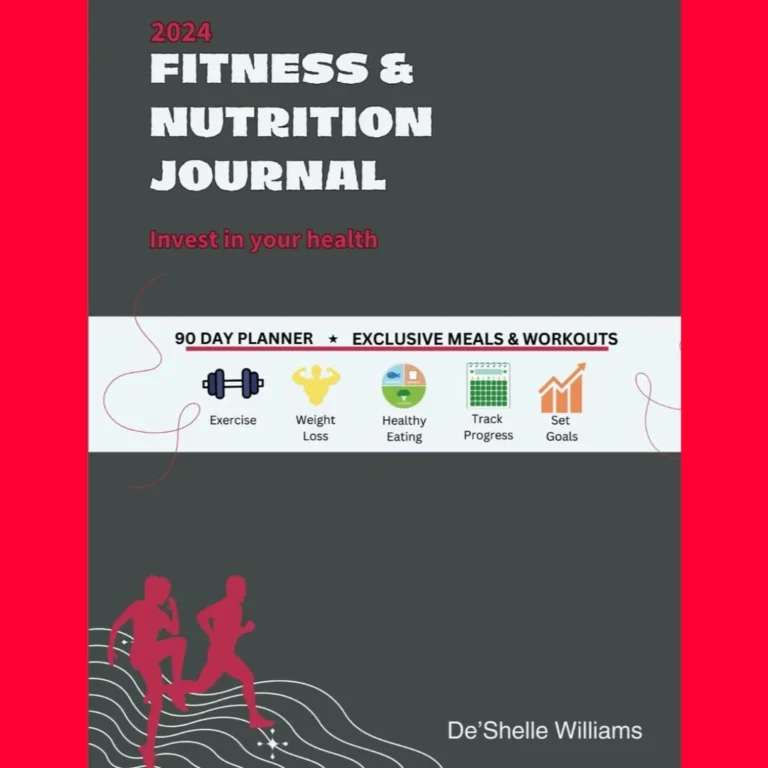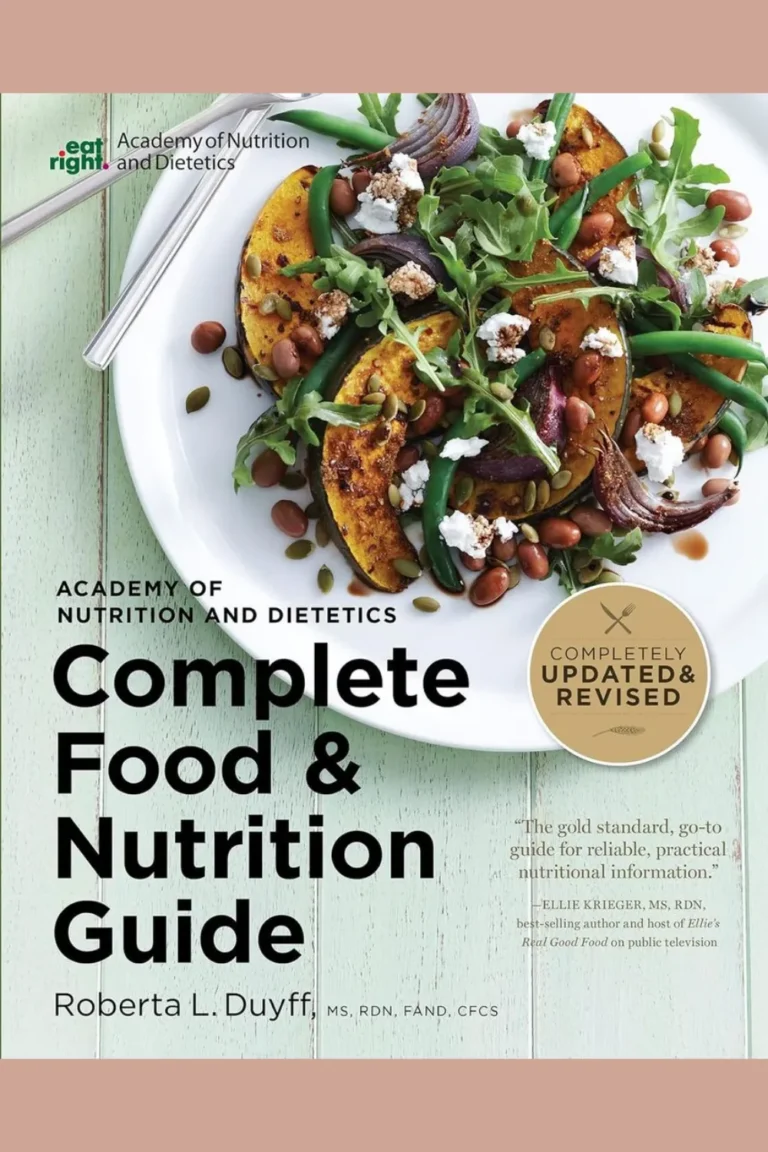Tips To Help Fuel Your Body
In our fast-paced world, where success and productivity are highly valued, it is essential to prioritize our physical health and well-being.
One of the key elements in achieving optimal physical performance is through proper nutrition.
What we eat and how we cook our food can significantly impact our energy levels, focus, and overall performance.
In this article, we will explore the science behind fueling our bodies for peak performance and share practical tips on how to cook and eat in a way that supports our physical goals.
From choosing the right types of fuel to understanding the importance of meal timing, this article will provide valuable insights into optimizing our diet for maximum performance.
Whether you are an athlete, a busy professional, or simply looking to improve your overall wellness, this guide will equip you with the knowledge and tools to make informed choices and take your physical performance to the next level.
So, let’s dive in and discover how to fuel our bodies for success.
Table of Contents Tips To Help Fuel Your Body
Fuel your body with nutritious meals
One of the key components to achieving peak performance is fueling your body with nutritious meals.
Eating a well-balanced diet that includes a variety of fruits, vegetables, whole grains, lean proteins, and healthy fats can provide your body with the necessary nutrients it needs to function optimally.
Incorporating nutrient-dense foods into your meals can help support your immune system, improve energy levels, enhance mental clarity, and promote overall well-being.
By prioritizing the quality of your food choices and focusing on nourishing your body, you can take a proactive approach to optimizing your performance and achieving your goals.
Properly cook proteins for optimal absorption
To properly fuel your body for peak performance, it is important to pay attention to how you cook proteins to ensure optimal absorption.
Cooking methods such as grilling, baking, and broiling can help retain the nutritional value of proteins while enhancing their flavor.
Avoid overcooking proteins, as excessive heat can denature the proteins and reduce their bioavailability.
On the other hand, undercooking can pose a risk of foodborne illnesses.
Aim for cooking proteins to the recommended internal temperature to ensure both safety and nutritional benefits.
Additionally, consider marinating proteins before cooking to enhance flavor and tenderize them, making them easier to digest and absorb.
By properly cooking proteins, you can maximize their nutrient content and support your body’s performance and recovery efforts.
Incorporate healthy fats for sustained energy
Incorporating healthy fats into your diet is key for sustained energy levels and overall well-being.
While fats have been demonized in the past, it’s important to understand that not all fats are created equal.
Healthy fats, such as those found in avocados, nuts, and olive oil, provide essential nutrients and play a vital role in supporting brain function, hormone production, and regulating inflammation in the body.
Adding these fats to your meals can help you feel more satisfied and energized throughout the day.
Consider incorporating avocado slices into your salads, sprinkling nuts on top of your yogurt or oatmeal, and using olive oil as a dressing or cooking oil.
By choosing healthy fats, you can nourish your body and fuel it for peak performance without compromising on taste or health.
Boost performance with complex carbohydrates
To further enhance your performance and fuel your body for peak performance, it is essential to incorporate complex carbohydrates into your diet.
Complex carbohydrates are a valuable source of sustained energy and provide important nutrients and fiber that can support your overall well-being.
Unlike simple carbohydrates, such as refined sugars, complex carbohydrates are digested more slowly, resulting in a steady release of glucose into your bloodstream.
This gradual release of energy helps to maintain stable blood sugar levels and prevents energy crashes.
Whole grains, legumes, fruits, and vegetables are excellent sources of complex carbohydrates that can be easily incorporated into your meals.
Consider adding quinoa to your salads, enjoying a hearty bowl of lentil soup, or snacking on carrot sticks with hummus.
By choosing nutritious complex carbohydrates, you can optimize your performance and nourish your body for long-lasting energy throughout the day.
Don’t forget about essential vitamins and minerals
In the pursuit of peak performance, it is crucial not to overlook the importance of essential vitamins and minerals in your diet.
These micronutrients play a significant role in various bodily functions and can have a profound impact on your overall well-being and performance.
Vitamins such as vitamin C, vitamin D, and the B vitamins are essential for maintaining energy levels, supporting immune function, and promoting optimal brain function.
Minerals like iron, calcium, and magnesium are necessary for proper muscle functioning, bone health, and energy metabolism.
Incorporating a diverse range of nutrient-dense foods into your daily meals can help ensure you are meeting your body’s nutritional needs.
Include leafy greens, citrus fruits, nuts, seeds, whole grains, and dairy products as part of a well-rounded diet to provide your body with the essential vitamins and minerals it requires for peak performance.
By prioritizing these vital nutrients, you can optimize your performance and support your overall health and well-being.
Meal prep for busy schedules
Meal prep can be a game-changer for individuals with busy schedules who are committed to maintaining a healthy lifestyle.
By spending a few hours each week planning and preparing meals in advance, you can save valuable time and ensure that you have nutritious options readily available when you need them most.
Begin by selecting a variety of recipes that align with your dietary preferences and goals, and make a detailed grocery list to streamline your shopping experience.
Once you have your ingredients, set aside a designated time to cook and portion out your meals for the week.
Investing in quality storage containers will help keep your food fresh and organized.
Not only does meal prep eliminate the stress of deciding what to eat each day, but it also allows you to control portion sizes and make conscious choices about the ingredients you include.
With a little planning and commitment, meal prep can become an essential tool in fueling your body for peak performance, even in the midst of a hectic schedule.
Experiment with new recipes guilt-free
Fueling Your Body: How to Cook and Eat for Peak Performance presents a wonderful opportunity to experiment with new recipes guilt-free.
Trying out different dishes not only keeps your meals exciting and enjoyable but also allows you to discover a variety of flavors and nutrient profiles.
By incorporating diverse ingredients and exploring various cooking techniques, you can expand your culinary skills while nourishing your body with wholesome meals.
Embrace the freedom to step out of your comfort zone and explore recipes that align with your dietary goals and preferences.
Whether it’s exploring plant-based options, incorporating more whole grains, or experimenting with international cuisines, the possibilities are endless.
With a focus on using fresh ingredients and mindful cooking practices, you can elevate your meals to new levels of taste and nutrition while achieving peak performance for your body.
Listen to your body’s needs
To truly fuel your body for peak performance, it is essential to listen to its needs.
Each person’s body is unique and has different requirements for optimal health and performance.
Pay attention to your hunger and fullness cues, as well as any specific cravings or dietary preferences you may have.
It is important to honor these signals and make choices that align with what your body is telling you.
For example, if you feel more energized and satisfied after eating a balanced meal with protein, carbohydrates, and healthy fats, prioritize those types of meals in your daily diet.
Similarly, if you find that certain foods or ingredients don’t agree with your digestion or leave you feeling sluggish, make adjustments and find alternatives that work better for you.
By listening to your body’s needs, you can create a personalized approach to cooking and eating that supports your overall well-being and helps you achieve peak performance.
In conclusion, taking care of our bodies is crucial for achieving peak performance.
By learning how to cook and eat for our individual needs and goals, we can fuel our bodies to perform at their best.
With the right balance of nutrients, proper hydration, and mindful eating habits, we can optimize our physical and mental capabilities.
So let’s prioritize our health and make conscious choices in the kitchen to support our bodies and reach our full potential.
Remember, a well-nourished body equals a well-performing body.
FAQ
What are some key nutrients that athletes should focus on incorporating into their diet to support peak performance?
Athletes should focus on incorporating key nutrients such as carbohydrates for energy, protein for muscle repair and growth, healthy fats for endurance and joint health, vitamins and minerals for overall health and performance, and hydration to maintain optimal fluid balance and prevent dehydration during intense physical activity.
Balancing these nutrients in their diet can help athletes enhance their performance, improve recovery, and support overall health and well-being.
How can meal timing and composition affect an athlete’s energy levels and performance?
Meal timing and composition can significantly impact an athlete’s energy levels and performance.
Eating a balanced meal with carbohydrates, protein, and healthy fats before exercise can provide the necessary energy for optimal performance.
Consuming a meal or snack with protein and carbohydrates within 30 minutes after exercise can aid in muscle recovery.
Timing meals around workouts can also ensure proper digestion and absorption of nutrients, leading to improved energy levels during training or competition.
Overall, a well-planned nutrition strategy tailored to an athlete’s training schedule can enhance energy levels and performance.
What are some healthy and convenient meal prep options for athletes with busy schedules?
Some healthy and convenient meal prep options for athletes with busy schedules include overnight oats, salads in jars, quinoa bowls, stir-fry with lean protein and vegetables, and smoothie packs.
These can be prepared in advance, are easy to grab on the go, and provide the necessary nutrients for athletes to fuel their bodies properly.
Additionally, options like grilled chicken or fish with roasted vegetables and sweet potatoes can be cooked in bulk and portioned out for quick and nutritious meals throughout the week.
Planning and preparation are key for athletes to maintain their energy levels and performance.
How can athletes ensure they are properly hydrating and fueling their bodies before, during, and after workouts or competitions?
Athletes can ensure proper hydration and fueling by drinking water before and during exercise, consuming carbohydrates for energy, and incorporating protein for muscle recovery after workouts.
Monitoring urine color, body weight, and thirst cues can help determine hydration levels.
Developing a nutrition plan tailored to individual needs, including timing meals and snacks before and after workouts, is essential.
Additionally, electrolytes and fluids should be replenished during and after exercise to maintain proper hydration levels.
Consulting with a sports nutritionist can provide personalized guidance for optimal performance.
What are some common mistakes athletes make in their diet that can hinder their performance, and how can they be avoided?
Some common mistakes athletes make in their diet include not consuming enough carbohydrates for energy, skipping meals, inadequate hydration, and not consuming enough protein for muscle recovery.
These can be avoided by working with a sports nutritionist to develop a balanced meal plan tailored to individual needs, meal prepping to ensure regular and nutritious meals, staying hydrated throughout the day, and consuming a mix of carbohydrates, proteins, and healthy fats to support performance and recovery.
Regular monitoring and adjustments to the diet based on training intensity and performance goals are also crucial.








